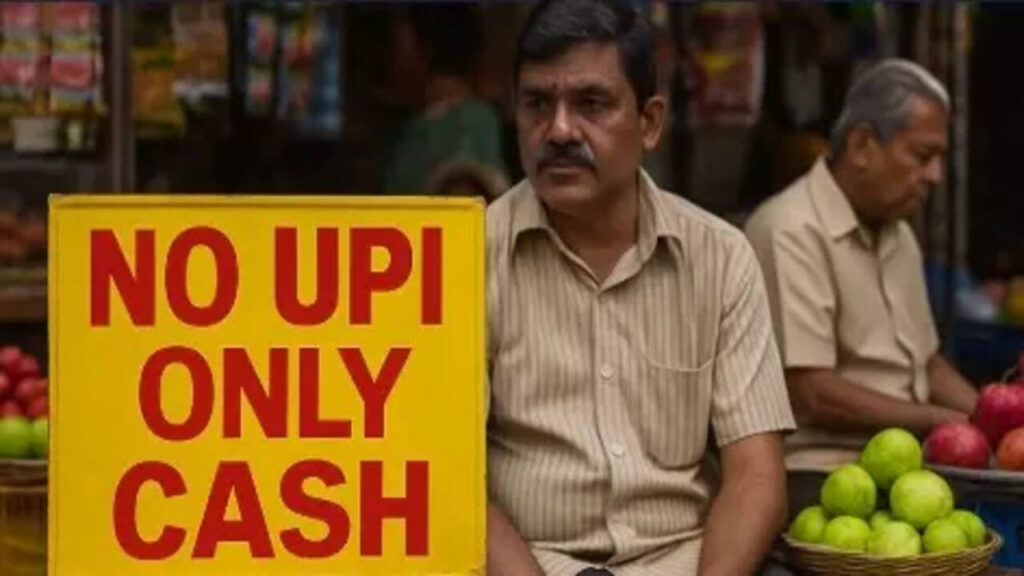‘No UPI, Only Cash’: Vendors Trigger GST Clarification Amid Tax Fears

‘No UPI, Only Cash’: Vendors Trigger GST Clarification Amid Tax Fears
Concerned over GST scrutiny, Bengaluru’s small vendors are avoiding digital payments, prompting the tax department to issue a clarification on payment-based assessments.
A growing number of small vendors in Bengaluru are refusing to accept UPI payments, citing fears of being issued notices under the Goods and Services Tax (GST) regime. This shift has led to public outcry and prompted the Karnataka commercial tax department to issue an official clarification on the matter.
Vendors across the city have begun displaying notices such as “No UPI, Only Cash” at their shops. Their concerns stem from recent reports that businesses receiving UPI payments beyond certain thresholds were being flagged for GST registration and scrutiny. According to existing rules, businesses with an annual turnover exceeding ₹40 lakh from goods or ₹20 lakh from services are required to register under GST.
Responding to the situation, tax officials clarified that GST notices are not based solely on UPI transactions. The commercial taxes department emphasized that all forms of payment be it digital, point-of-sale machines, bank transfers, or even cash, are considered when evaluating GST liability. Officials urged vendors to continue accepting UPI payments and warned that opting for cash alone does not exempt them from GST rules.
The issue gained attention on social media, where users criticized the move to cash-only payments. Many pointed out the irony of vendors attempting to dodge taxes while salaried individuals face high levels of compliance and deductions. A Reddit user expressed frustration at the disparity, writing, “We are taxed at every turn and have to provide endless paperwork for basic benefits, while some vendors try to bypass taxes by avoiding UPI.”
The broader context reveals the pressure faced by Karnataka’s tax authorities. The state is working toward an ambitious revenue collection target of ₹1.20 lakh crore for the financial year 2025–26. Chief Minister Siddaramaiah is simultaneously balancing demands for infrastructure spending and fulfilling welfare promises worth ₹52,000 crore. This fiscal pressure has led to increased vigilance on potential tax evasion across sectors.
Several vendors fear that UPI transactions, even when unrelated to business, such as loans from family or personal transfers might be misinterpreted as taxable income. A former GST field officer acknowledged this concern, pointing out that UPI credits are not always linked to commercial activity.
Vinay K Sreenivasa of the Federation of Bengaluru Street Vendors Associations said that small businesses and food vendors are experiencing significant anxiety over GST notices. Some fear that continued digital tracking could even result in loss of business space or eviction from their vending spots.
HD Arun Kumar, former additional commissioner of commercial taxes in Karnataka, stressed the importance of accuracy and fairness in GST enforcement. He noted that officers must rely on verifiable data before issuing any demand, ensuring that vendors are not penalized based on assumptions.
Meanwhile, BJP MLA S Suresh Kumar has promised to bring the issue to the attention of the Chief Minister, urging intervention to protect street vendors’ livelihoods while ensuring compliance with tax laws.
As the debate intensifies, the tax department’s message remains firm, digital payments alone are not the basis for GST enforcement, and avoidance of UPI does not shield vendors from their legal obligations.












